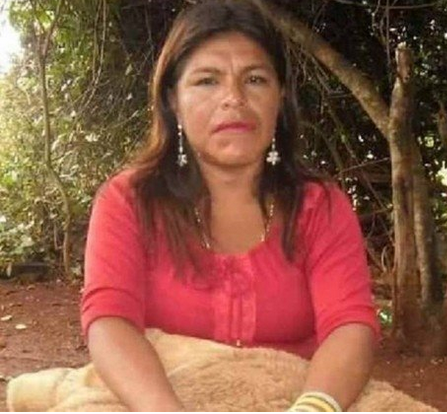Marinalva Manoel lived in Ñu Verá, a community of 28 Guarani Kaiowá families who are struggling to get the 1,500 acres of land they live and work on recognised as belonging to an indigenous people. Even though the legal process is at an advanced stage they are under a lot of pressure from local ranchers who dispute their claim, and also from developers, who want the land for housing, because it is close to the city. On the morning of 1 November 2014, Marinalva’s body was found on the side of the road with multiple stab wounds
Marinalva was a member of the Grande Conselho Guarani-Kaiowáda Aty Guassu of the Guarani Kaiowá. Two weeks before she was killed, Marinalva had gone to Brasilia as part of a delegation of leaders representing indigenous peoples. They had camped out in from of the Supreme Court to protest at a proposal to overturn the decision to grant the land to the Guarani Kaiowá.
Marinalva had spoken many times of the recent upsurge in threats from local ranchers, or people employed by them. In its press release, the NGO Mulheres (the Portuguese word for “women”) described Marinalva as “an obstinate young woman who dared to defed the rights of indifgenous peoples, including the guarantee of land and of ancestrality.”
